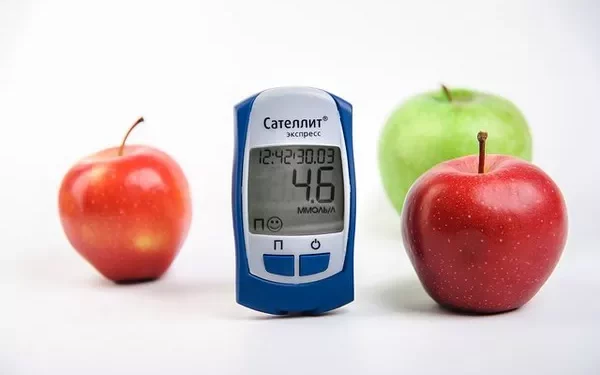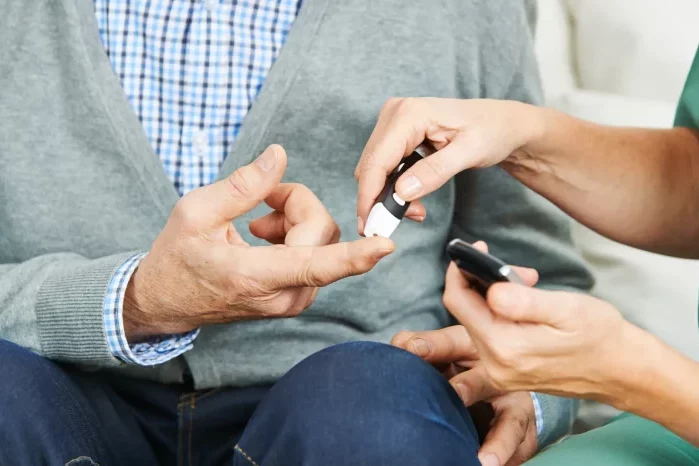Hyperinsulinemic hypoglycemia is a condition characterized by abnormally low blood glucose levels (hypoglycemia) caused by excessive insulin in the bloodstream. This condition can occur in various contexts and has multiple potential causes. It is critical to understand the underlying mechanisms, symptoms, diagnosis, and management strategies to effectively address this condition and prevent complications.
Mechanisms of Hyperinsulinemic Hypoglycemia
The primary feature of hyperinsulinemic hypoglycemia is an overproduction or inappropriate release of insulin by the pancreas, leading to low blood glucose levels. Insulin is a hormone produced by the beta cells of the pancreas and plays a crucial role in regulating blood glucose levels by facilitating the uptake of glucose into cells for energy production or storage as glycogen.
Pathophysiology
In normal circumstances, insulin secretion is tightly regulated to maintain blood glucose within a narrow range. However, in hyperinsulinemic hypoglycemia, there is a dysregulation of insulin release, which can occur due to several reasons:
Insulinomas: These are rare, usually benign tumors of the pancreatic beta cells that secrete insulin independently of normal regulatory mechanisms.
Congenital Hyperinsulinism: This is a genetic disorder characterized by mutations in genes involved in the regulation of insulin secretion, leading to persistent hyperinsulinemia and hypoglycemia in infants and children.
Post-Bariatric Surgery Hypoglycemia: Some individuals who have undergone bariatric surgery, particularly gastric bypass, may experience exaggerated insulin responses to meals, resulting in hypoglycemia.
Medications: Certain medications, such as sulfonylureas or insulin administered for diabetes, can cause hypoglycemia if not properly managed.
Non-Insulinoma Pancreatogenous Hypoglycemia Syndrome (NIPHS): This is a condition where there is inappropriate insulin secretion without the presence of an insulinoma.
Symptoms of Hyperinsulinemic Hypoglycemia
The symptoms of hyperinsulinemic hypoglycemia are primarily due to the effects of low blood glucose on the brain and other tissues. These symptoms can range from mild to severe and include:
Neuroglycopenic Symptoms: These occur due to insufficient glucose supply to the brain and may include confusion, difficulty concentrating, dizziness, headaches, irritability, behavioral changes, and in severe cases, seizures, and loss of consciousness.
Adrenergic Symptoms: These are due to the activation of the sympathetic nervous system in response to hypoglycemia and include sweating, palpitations, tremors, anxiety, hunger, and a feeling of impending doom.
Diagnosis of Hyperinsulinemic Hypoglycemia
Diagnosing hyperinsulinemic hypoglycemia involves a thorough clinical evaluation, laboratory tests, and sometimes imaging studies to identify the underlying cause. Key diagnostic steps include:
Medical History and Physical Examination: A detailed medical history and physical examination can help identify potential causes and risk factors.
Blood Tests: Blood glucose levels are measured, along with insulin, C-peptide, and proinsulin levels, to assess the insulin response during hypoglycemia. Elevated insulin levels in the presence of hypoglycemia suggest hyperinsulinemia.
Supervised Fasting Test: In some cases, a supervised fasting test may be performed to induce hypoglycemia and measure insulin levels during the fasting period.
Mixed-Meal Test: This test involves consuming a standardized meal to provoke insulin secretion and monitoring blood glucose and insulin levels over time.
Imaging Studies: If an insulinoma is suspected, imaging studies such as MRI, CT scans, or endoscopic ultrasound may be used to locate the tumor.
Genetic Testing: For congenital hyperinsulinism, genetic testing may be performed to identify specific gene mutations.
Management of Hyperinsulinemic Hypoglycemia
The management of hyperinsulinemic hypoglycemia depends on the underlying cause and the severity of the condition. The primary goals are to prevent hypoglycemia, maintain normal blood glucose levels, and address any underlying disorders. Treatment strategies include:
Lifestyle and Dietary Modifications
Frequent, Small Meals: Consuming small, frequent meals that are balanced in carbohydrates, protein, and fat can help stabilize blood glucose levels.
Avoiding High Glycemic Index Foods: Foods that cause rapid spikes in blood glucose levels should be avoided to prevent exaggerated insulin responses.
Monitoring Blood Glucose Levels: Regular monitoring of blood glucose levels can help detect and prevent episodes of hypoglycemia.
Medications
Diazoxide: This medication inhibits insulin release from the pancreas and is often used in congenital hyperinsulinism.
Octreotide: A somatostatin analog that suppresses insulin secretion and can be used to manage hyperinsulinemic hypoglycemia.
Glucagon: In emergency situations, glucagon injections can be used to rapidly increase blood glucose levels.
Surgical Interventions
Pancreatectomy: In cases of insulinomas or severe congenital hyperinsulinism that do not respond to medical management, surgical removal of part or all of the pancreas may be necessary.
Bariatric Surgery Adjustments: For individuals with post-bariatric surgery hypoglycemia, adjustments to the surgical procedure or reversal may be considered in severe cases.
Long-Term Management and Monitoring
Long-term management of hyperinsulinemic hypoglycemia requires ongoing monitoring and adjustments to treatment plans. Key aspects of long-term management include:
Regular Follow-Up Appointments: Regular visits with a healthcare provider to monitor blood glucose levels, assess treatment effectiveness, and make necessary adjustments.
Education and Self-Management: Educating patients and their families about the condition, recognizing symptoms of hypoglycemia, and managing episodes effectively.
Support and Counseling: Providing psychological support and counseling to help individuals cope with the challenges of living with hyperinsulinemic hypoglycemia.
Complications of Hyperinsulinemic Hypoglycemia
If left untreated or poorly managed, hyperinsulinemic hypoglycemia can lead to severe complications, including:
Neurological Damage: Prolonged or recurrent episodes of severe hypoglycemia can cause permanent brain damage and cognitive impairment.
Cardiovascular Issues: Hypoglycemia can trigger arrhythmias and other cardiovascular complications.
Impact on Quality of Life: Frequent hypoglycemic episodes can significantly impact daily activities, work, and social interactions, leading to reduced quality of life.
Preventing Hypoglycemic Episodes
Preventing hypoglycemic episodes is a critical aspect of managing hyperinsulinemic hypoglycemia. Key strategies include:
Adherence to Treatment Plans: Following the prescribed treatment plan, including medications, dietary recommendations, and lifestyle modifications.
Regular Blood Glucose Monitoring: Keeping track of blood glucose levels to detect and address hypoglycemia early.
Emergency Preparedness: Having a glucagon kit available and ensuring that family members and caregivers know how to use it in case of severe hypoglycemia.
Education and Awareness: Educating patients, families, and caregivers about the condition, recognizing symptoms, and implementing preventive measures.
See also: Can Not Eating Enough Cause Hypoglycemia?
Conclusion
Hyperinsulinemic hypoglycemia is a complex condition that requires a comprehensive approach to diagnosis, treatment, and long-term management. Understanding the underlying mechanisms, recognizing symptoms, and implementing effective treatment strategies are essential for preventing complications and improving the quality of life for individuals with this condition.
With advances in medical research and treatment options, many individuals with hyperinsulinemic hypoglycemia can achieve good control of their blood glucose levels and lead healthy, active lives. Early diagnosis, proactive management, and ongoing support are crucial in ensuring the best possible outcomes for those affected by this condition.
If you suspect you or a loved one may have hyperinsulinemic hypoglycemia, it is important to seek medical attention and work closely with healthcare professionals to develop a personalized treatment plan. Through collaboration and adherence to medical advice, individuals with hyperinsulinemic hypoglycemia can manage their condition effectively and minimize the risk of complications.
Related topics:
What Foods Are Good for Reactive Hypoglycemia?



























